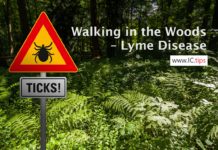The COVID-19 Pandemic has uncovered significant flaws in both our societal and individual physiologic responses to novel viral infections. Individually, in the absence of an adaptive immunity, our immune systems must rely on our so-called “innate immunity.” At the same time, until either immunizations or therapies are made available, our health systems must rely on public health interventions like masks, social distancing, and quarantine, requiring significant coordination and cooperation alongside significant social and economic consequences. By combining functional genomics with both the capabilities of “the cloud” and artificial intelligence (AI), My Next Health has developed the “Stay Safe” risk self-assessment system to identify an individual’s vulnerability to disease, which can significantly mitigate any weaknesses at both societal and individual levels.
The profound variability we have all seen and experienced so far in our individual responses to SARS-CoV-2 infection may be the product of either reduced individual capacity to resist or recover from the virus or increased vulnerability to it. Ongoing research has so far identified that observed individual differences in our susceptibility are associated with multiple factors, including Vitamin D levels (Grant, 2020), and medical conditions like diabetes, hypertension, COPD and asthma, obesity and other chronic illnesses (Costa, 2020).
some genetic variations are actionable
Both My Next Health and other researchers have identified a number of genetic variations associated with both individual risks and optimal innate immunity (Zafar, 2018). Furthermore, some of those genetic variations are actionable, using therapeutics as simple as vitamins and supplements (Jayawardena, 2020; Rochlani, 2017). Meanwhile, amidst a growing demand for the deployment of as many safe and readily available treatments as possible in conjunction with ongoing and appropriate research (Infusino, 2020), early and preliminary independent investigators have already demonstrated that the use of vitamins and supplements may affect clinical COVID-19 infection severity sufficient to reduce risk of ICU admission by up to 80% (Tan, 2020).
Those genetic variations are either inferable by phenotype questionnaire or determinable by genotype testing, and both the risks associated with those variations and the early and milder symptoms of COVID-19 are amenable to self-management with safe and effective therapies available OTC. Using a cloud-based, AI facilitated system to identify identifiable risks and mild/early symptoms and track the impact of OTC interventions, “Stay Safe” can identify superior mitigations, facilitate individual resistance to and recovery from COVID-19, and improve societal cooperation and coordination as well.
References
Costa FF, Rosário WR, Ribeiro Farias AC, de Souza RG, Duarte Gondim RS, Barroso WA. (2020). Metabolic syndrome and COVID-19: An update on the associated comorbidities and proposed therapies. Diabetes Metab Syndr.,14(5):809-814. doi:10.1016/j.dsx.2020.06.016
Grant WB, Lahore H, McDonnell SL, et al. (2020). Evidence that Vitamin D Supplementation Could Reduce Risk of Influenza and COVID-19 Infections and Deaths. Nutrients, 12(4):988. doi:10.3390/nu12040988
Infusino, F., Marazzato, M., Mancone, M., et al. (2020). Diet Supplementation, Probiotics, and Nutraceuticals in SARS-CoV-2 Infection: A Scoping Review. Nutrients, 12(6), 1718. https://doi.org/10.3390/nu12061718
Jayawardena R, Sooriyaarachchi P, Chourdakis M, Jeewandara C, Ranasinghe P. (2020). Enhancing immunity in viral infections, with special emphasis on COVID-19: A review. Diabetes Metab Syndr., 14(4):367-382. doi:10.1016/j.dsx.2020.04.015
Rochlani Y, Pothineni NV, Kovelamudi S, Mehta JL. (2017). Metabolic syndrome: pathophysiology, management, and modulation by natural compounds. Ther Adv Cardiovasc Dis.,11(8):215-225. doi:10.1177/1753944717711379
Tan CW, Ho LP, Kalimuddin S, et al. (2020). A cohort study to evaluate the effect of combination Vitamin D, Magnesium and Vitamin B12 (DMB) on progression to severe outcome in older COVID-19 patients. medRxiv 2020.06.01.20112334; doi: https://doi.org/10.1101/2020.06.01.20112334
Zafar U, Khaliq S, Ahmad HU, Manzoor S, Lone KP. (2018). Metabolic syndrome: an update on diagnostic criteria, pathogenesis, and genetic links. Hormones (Athens),17(3):299-313. doi:10.1007/s42000-018-0051-3












